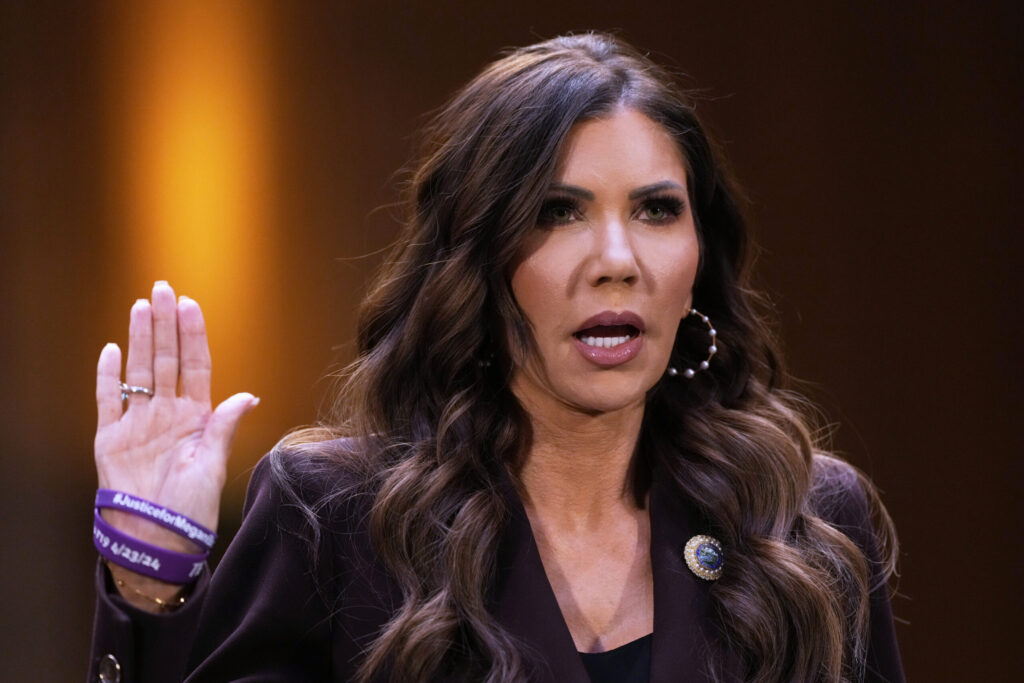Colorado Springs Christian bookstore sues state over ‘gender expression’ protections
A federal lawsuit filed Wednesday on behalf of a Christian bookstore in Colorado Springs is pushing back against recent legislation that expanded protections for LGBTQ+ people in the state.
Signed into law in May by Gov. Jared Polis, the Kelly Loving Act made the intentional, public misgendering or “deadnaming” of a transgender person a violation of the Colorado Anti-Discrimination Act.
The owners of Born Again Used Books, a 21-year-old family-run store off Austin Bluffs Parkway, say the new requirements force them to act in a way that conflicts with their devout faith and tramples their First Amendment rights, according to the Alliance Defending Freedom, the conservative Christian legal advocacy group whose lawyers filed the suit and are representing the plaintiffs.
“Although Born Again Used Books happily sells its products to everyone, Colorado now compels the bookstore to speak using pronouns and titles based on a person’s preferred gender expression — thereby requiring the store to prioritize a person’s professed identity over biological reality,” according to ADF’s release. “(T)he Bookstore cannot speak contrary to its beliefs. … So the store cannot use pronouns, titles, or any other language contrary to a person’s biological sex. To do so would be to affirm the view that a person’s sex can and sometimes should be changed — a view that contradicts the Bookstore’s Christian beliefs.”
The complaint filed in federal court against the Colorado Civil Rights Commission and state Attorney General Phil Weiser goes on to outline how the law constrains Born Again’s ability to fully embrace its identity and honestly market itself as a small business.
“With constant pressure to distinguish themselves from big chains, independent bookstores tirelessly curate their shelves and ambiance to strike just the right theme — whether it’s religion, thrillers, local-interest, or LGBTQ,” it reads.
“The government has no business infringing that editorial discretion or telling bookstores what to say, what views to affirm, or what sides to pick in ideological debates.”
Named in honor of Kelly Loving, a transgender woman who was one of five people killed Nov. 19, 2022, in a bias-motivated mass shooting at Club Q in Colorado Springs, the law expanded the state’s anti-discrimination act into dynamic new legal territory, making Colorado one of only a handful of states to formally recognize more nuanced aspects of identity — “gender expression” elements, such as chosen name and “how an individual chooses to be addressed” — as protected rights. Other provisions of the law, including changes to how residents go about updating their name or gender on identifying documents, are set to go into effect Oct. 1, 2026.
The office of Colorado Attorney General Philip Weiser declined to comment on the Born Again lawsuit, citing ongoing litigation.
The Born Again lawsuit joins a handful of others in Colorado that have challenged so-called “woke” legislation, which opponents argue represents a gross government overreach into private lives, and personal choice.
Two of the more headline-making cases, both of which were battled all the way to the Supreme Court, involve Lakewood-based Masterpiece Cakeshop, its owner Jack Phillips and his refusal to make cakes with messaging that runs counter to his Christian faith.
The Supreme Court partially ruled in Phillips’ favor in a case arising from a 2012 incident, in which Phillips refused to make a cake for a gay wedding, overturning a previous ruling by state justices, who found the Christian baker had violated state laws. Lawyers with Alliance Defending Freedom represented Phillips in that case, as well as a later legal run-in that also made it to Washington.
The more recent lawsuit stemmed from a 2017 incident in which Phillips refused to create a custom-designed gender reveal party cake for Autumn Scardina, a transgender woman. State Supreme Court justices determined in October that Scardina had improperly filed her claim, effectively ending the legal saga. They stopped short of opining on any ideological aspects of the complaints:
“We express no view on the merits of these claims,” the justices wrote, in the majority opinion.
Colorado Politics Must-Reads:











